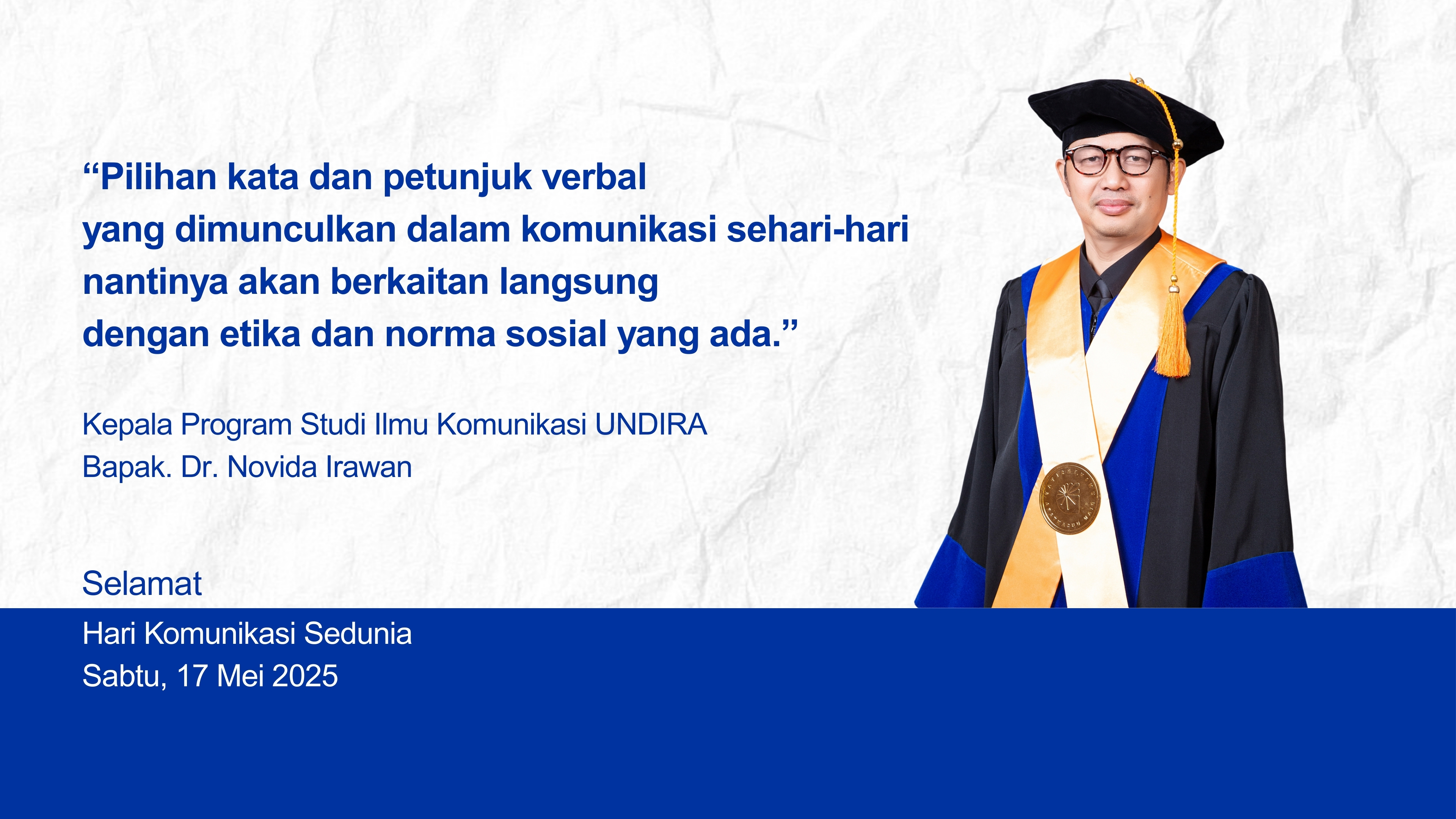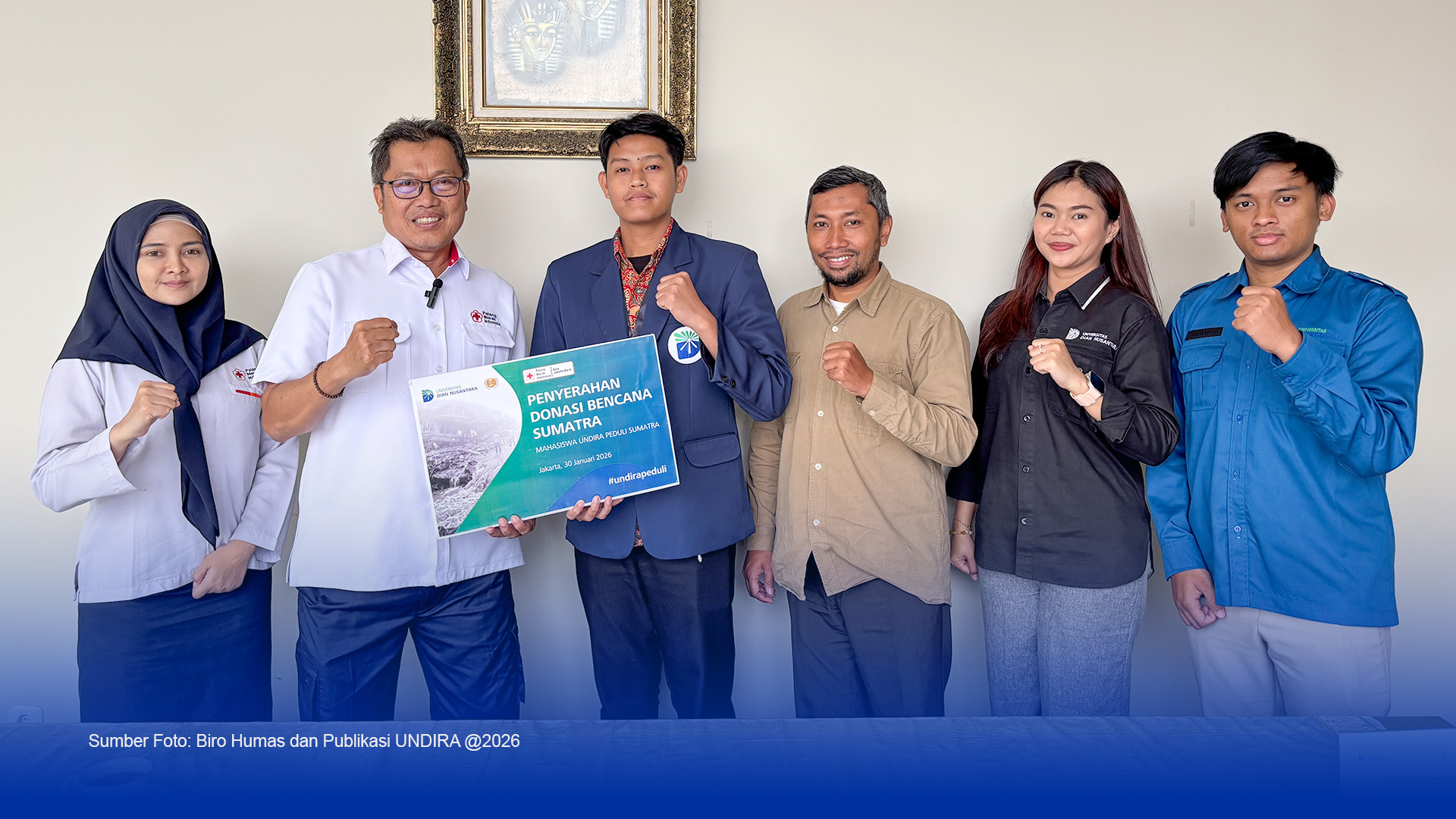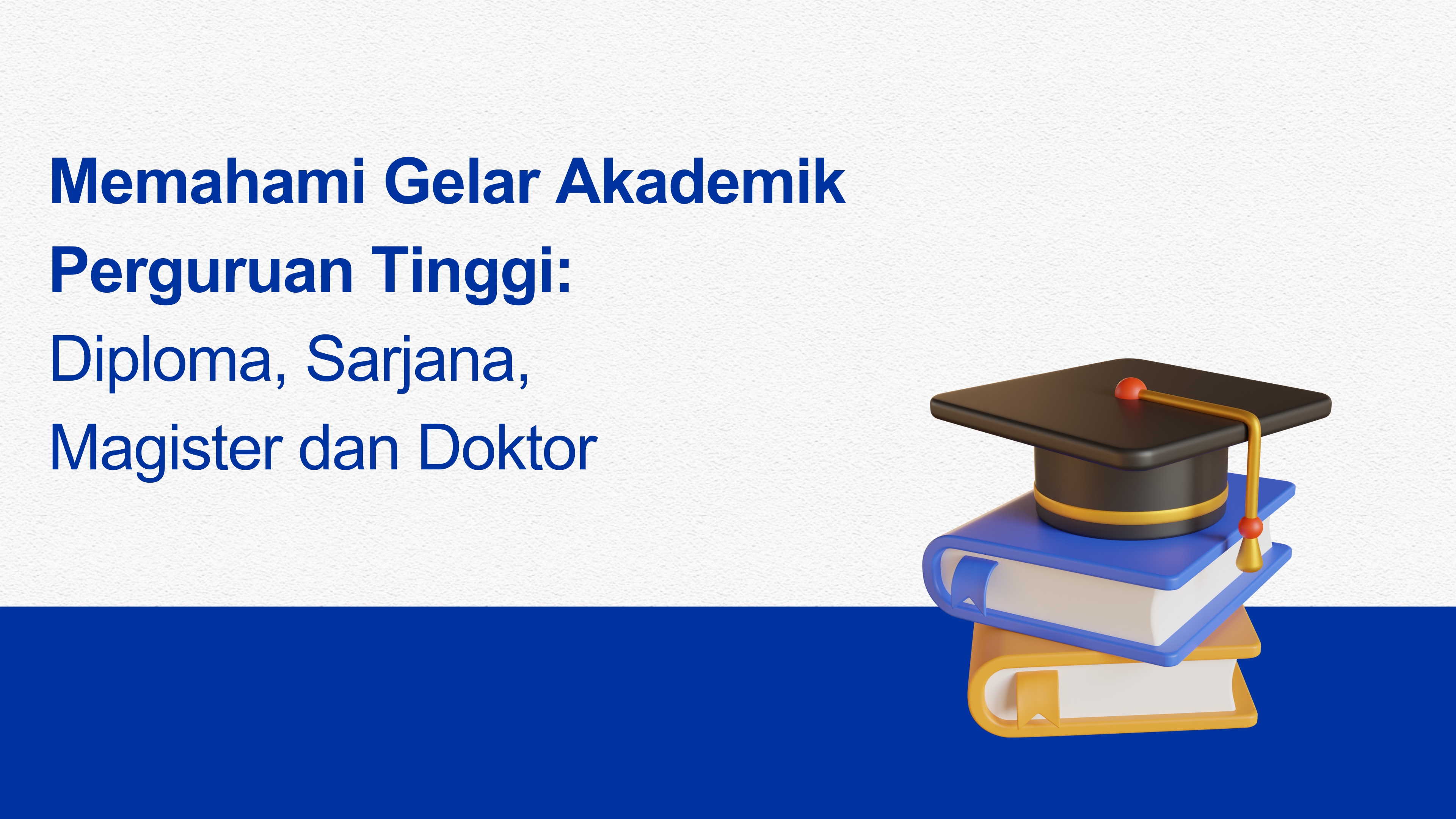Etiquette and Communication Effectiveness in the Era of 5.0: Communication as More Than Just an Exchange of Information

Like a heartbeat that never stops, communication is an essential human need that cannot be replaced. It serves as the foundation of every interaction, allowing people to exchange information, express emotions, articulate ideas, and build social relationships. Simply put, communication is the process of transferring information that involves interaction between individuals or groups.
More than just a tool for delivering messages, communication is also a medium for self-expression. Through ideas, emotions, visual symbols, numbers, and even metaphors, people express their aspirations and perspectives to the world.
According to Dr. Novida Irawan, Head of the Communication Studies Program at Universitas Dian Nusantara (UNDIRA), communication is closely tied to ethics and culture.
“Ethics in communication is a vital part of human life. While communication can still occur without ethics, it may lead to misunderstandings. Fundamentally, communication ethics can be seen as efforts to preserve relationships in a way that does not harm others or create conflict. Ethical communication behavior provides a normative framework that focuses on proper communication practices,” said Dr. Novida Irawan.
Verbal communication—whether spoken or written—can be found in various spaces, from mass media to digital platforms. However, communication also occurs nonverbally, through body language, tone of voice, clothing style, and even expressions of values and ideologies reflected in one’s actions.
Interestingly, several studies suggest that communication reflects individual identity. In the Communication Theory of Identity proposed by Michael Hecht (in LittleJohn & Foss, 2009:131), it is explained that people tend to shape their communication approach based on their self-perception and how they wish to be perceived by others. Social identity is formed through this mechanism, as individuals view themselves through the lens of group judgment.
Thus, communication not only regulates a person’s external social dynamics but also reflects the intrinsic motivations and values that shape one’s character. This becomes increasingly complex in the era of Society 5.0, where technological advances and social media expand the reach of communication beyond spatial and temporal boundaries. Today, interactions occur not only between humans but also with artificial intelligence (AI) as communication partners.
Yet behind this convenience, the majority of social and digital media content has fostered patterns of communication that are instant and tend to promote a culture of vulgarity. Individualism continues to rise, face-to-face interaction skills are declining, and communication misunderstandings occur more frequently.
For the younger generation, these challenges can significantly impact the development of social character and critical thinking skills. On World Communication Day, we are reminded that communication is not merely about sending message A to person B—it is also about how communication ethics can influence the world around us.
To address this reality, improving education and media literacy is an urgent need. Media literacy, at its core, is the ability to manage information comprehensively. It is not merely the skill to understand media content, but also the capacity to think critically and evaluate information—skills that will inevitably transform communication patterns.
To communicate more ethically and professionally—in line with one of UNDIRA’s visions of professionalism—efforts must be made to enhance digital literacy in society. Digital literacy is the ability to critically understand and use information and communication technology.
As media literacy fosters critical thinking and awareness, individuals are expected to rationally manage their communication culture.
Amid the surge of information and the ongoing wave of digital transformation, students and academics have a vital role as agents of change. Understanding communication is no longer just about exchanging messages, but about shaping character, strengthening human values, and preserving civility in an increasingly complex society. Therefore, cultivating ethical, reflective, and inclusive communication skills is not merely a choice—it is a necessity in building a meaningful and civilized future in education.
(Danang Respati Wicaksono / Humas UNDIRA)
Press Contact :
Biro Humas & Sekretariat Universitas Dian Nusantara
Facebook : www.facebook.com/undiraofficial
Instagram : www.instagram.com/undiraofficial
Twitter : www.twitter.com/undiraofficial
www.undira.ac.id

Campus Tanjung Duren
Jln. Tanjung Duren Barat II No. 1
Grogol, Jakarta Barat. 11470
Campus Green Ville
JIn. Mangga XIV No. 3
Campus Cibubur
Jln. Rawa Dolar 65
Jatiranggon Kec. Jatisampurna, Bekasi. 17432










